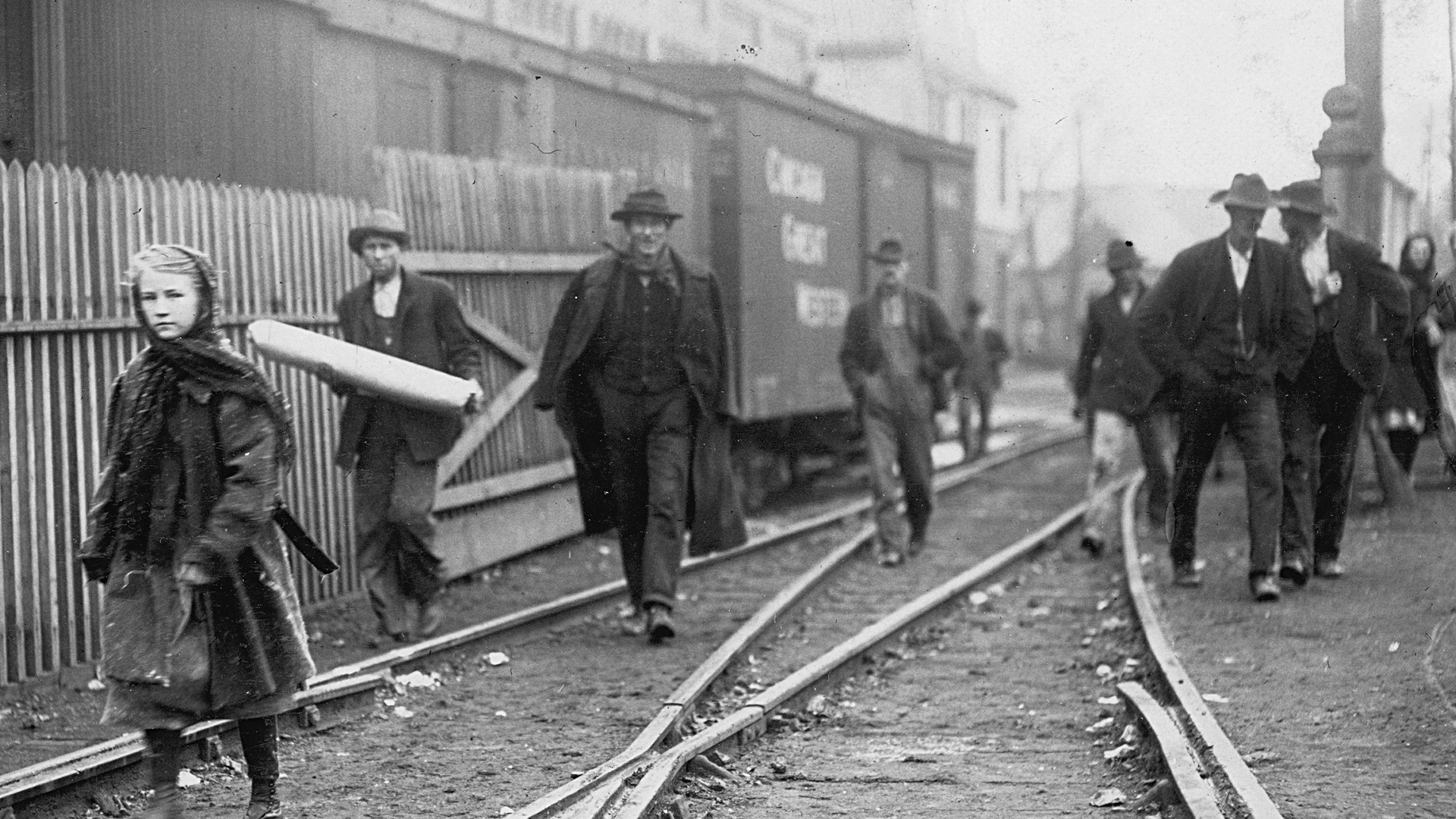When Mr. Robot is Your Boss: Working under algorithms
by
Tuomas Tammisto
November 5, 2018
Featured in The Transnational Courier Federation (#5)
A workers’ view of algorithmic management
inquiry
When Mr. Robot is Your Boss: Working under algorithms
by
Tuomas Tammisto
/
Nov. 5, 2018
in
The Transnational Courier Federation
(#5)
A workers’ view of algorithmic management
This article was originally published on the Finnish workers blog, Justice for Couriers.
The phone rings and an eerie voice mimicking a woman says: “Your shift is about to start, please log in and make sure you are in your designated starting area.”
This automatic reminder to promptly start the shift was, for me, the most tangible reminder that couriers working for Foodora and similar “platform capitalism” companies operate via the control of algorithms. While getting a call from a robot urging to start your shift is uncanny, the algorithms control the couriers’ work in more subtle, and more important, ways.
Dispatching, namely the assignment of orders to couriers is done automatically at Foodora. Through the application that the couriers use to receive orders, the algorithm tracks the couriers’ location, average speed, how quickly the courier delivers the food and how much time they spend at the customer. Based on an unknown weighing of these factors, the algorithm assigns a specific order to a given courier.
The dispatcher, who distributes orders, plays probably the single most important part in a courier’s job. The courier plans their own routes, but the dispatcher gives the orders, sets the pace and provides the information the courier needs to do their job. No matter how fast a courier rides or how well they navigate the city, if dispatching does not work, nothing works. Conversely, when dispatchers and couriers work well together and communicate with each other, they deliver orders quickly and efficiently. When the dispatcher is a courier themselves, this cooperation usually works best, because the dispatcher knows what can be expected from a cyclist, how the weather, the load and distance affects the courier.
Foodora has human dispatchers, who oversee couriers in a given city. However, in the working process designed by Foodora, human dispatchers ideally don’t interact with couriers, who should get their orders automatically. Presumably as a cost-saving measure, Foodora centralized its dispatching to Berlin and the dispatchers overseeing say Helsinki know nothing about the city. Thus the dispatchers are not able to help couriers in problem cases and sometimes the results are just plain bizarre, for example when by mistake an order has registered to a restaurant that is in fact closed and the courier tries to tell disbelieving dispatchers in Berlin that the cannot pick it up, because… well, the restaurant is closed.
The biggest problem however is one of transparency. The provisions paid for the order form a substantial part of the couriers’ income at Foodora, and because of this, those who get more orders earn more. The courier however does not know how and why the algorithm distributes the orders to one courier instead of another. Apparently, the algorithm distributes orders to couriers it deems “effective”. I have seen a situation when a fast courier came exhausted with less than ten minutes of their shift remaining to the office where couriers, who had just started their shifts sat waiting for orders. Then a new order came and algorithm assigned it to the fast courier. Why, nobody knows, but in Foodora’s automatic system once an order is assigned it cannot be changed.
Similarly, the algorithm classes Foodora’s couriers into four “batches”, or groups, based on their performance (as judged by the algorithm). Shifts are made available in steps to these batches so that the first batch, with the “best” couriers, get first pick from all the shifts, then the next and those in the last batch pick any shifts that might be left. How a courier gets shifts obviously directly affects their income. If one can do only a limited amount of hours, one also earns less. Along with this direct effect, how much and how well one works affects also one’s position in the “batch” and the possibility to get shifts in the future.
In short, the algorithms directly control the couriers’ work and their income, but in ways the courier can only guess. Even if the courier was adept in reading the code and reverse-engineering the applications, the systems that manage them are proprietary and not made known to the courier.
Automatic dispatching may be well-grounded in a situation with many couriers, constantly incoming and fast-paced orders. Algorithms, like any technologies, have particular affordances that may encourage particular types practices, but they do not determine them. On the contrary, the algorithms do what they are designed to and within social relations of production that are formed based on human decisions. When non-transparent algorithms are combined with hierarchical and unequal forms of labor as now in “platform capitalism”, workers are adversely affected. Similarly, when decisions directly affecting the worker are automated, the actual hierarchy within the workplace is obfuscated and unequal power relations are masked as technical properties of the applications.
This needs however not to be so. Instead of making workers compete with one another over shifts and orders, the applications could be designed to enable greater co-operation between couriers themselves and between couriers and dispatchers. Instead of masking unequal power relations within the companies, the applications, like any other tools, could be designed to foster truly equal forms of labor. We have to change not the applications, but the social relations behind them. And that is what couriers throughout Europe are now doing and we hope precarious workers in other sectors will join us.
Featured in The Transnational Courier Federation (#5)
author
Tuomas Tammisto
Subscribe to Notes from Below
Subscribe now to Notes from Below, and get our print issues sent to your front door three times a year. For every subscriber, we’re also able to print a load of free copies to hand out in workplaces, neighbourhoods, prisons and picket lines. Can you subscribe now and support us in spreading Marxist ideas in the workplace?
Read next

Towards an Organized Tech Industry—Part One
by
Wendy Liu
/
July 15, 2018


